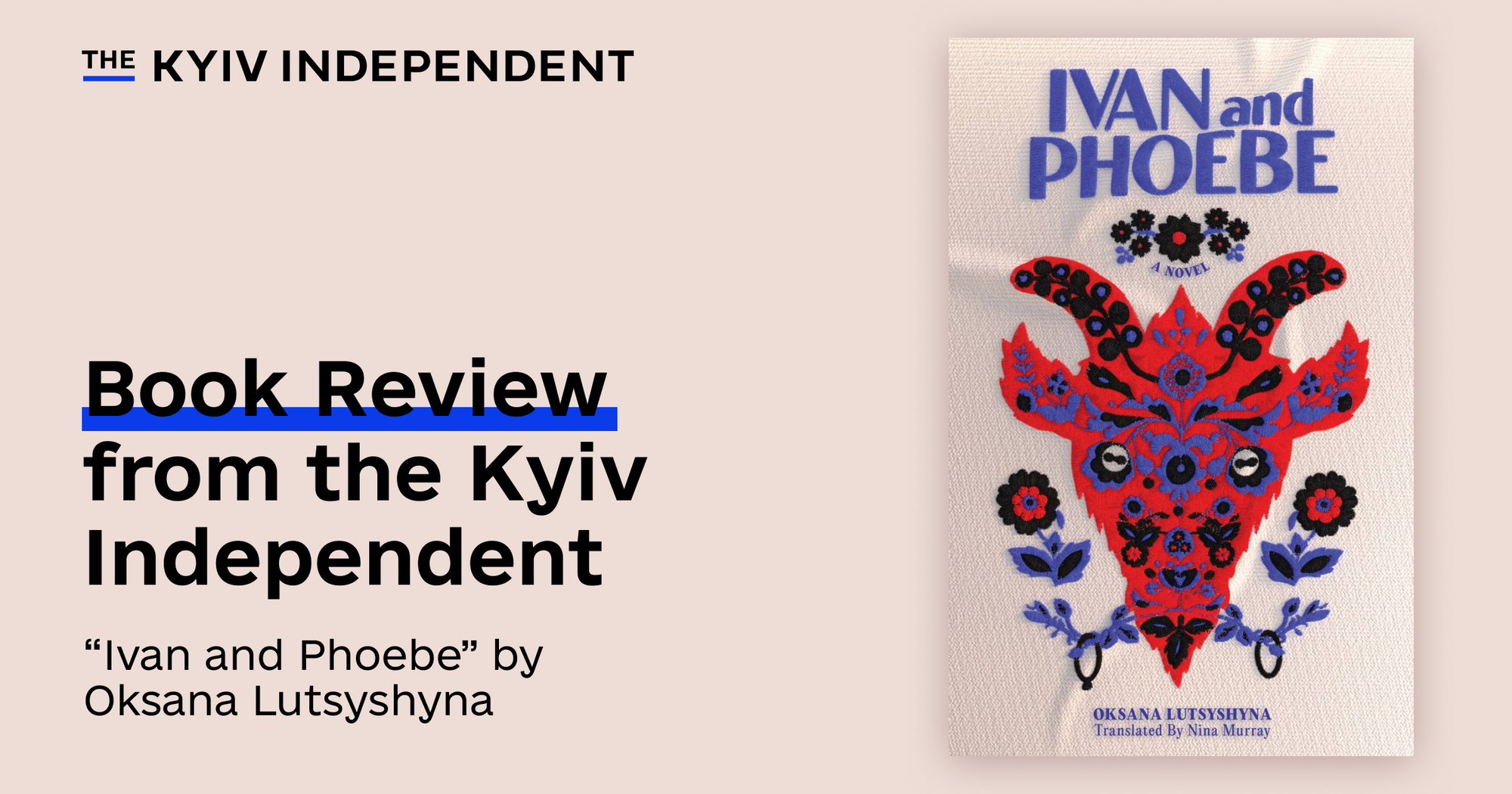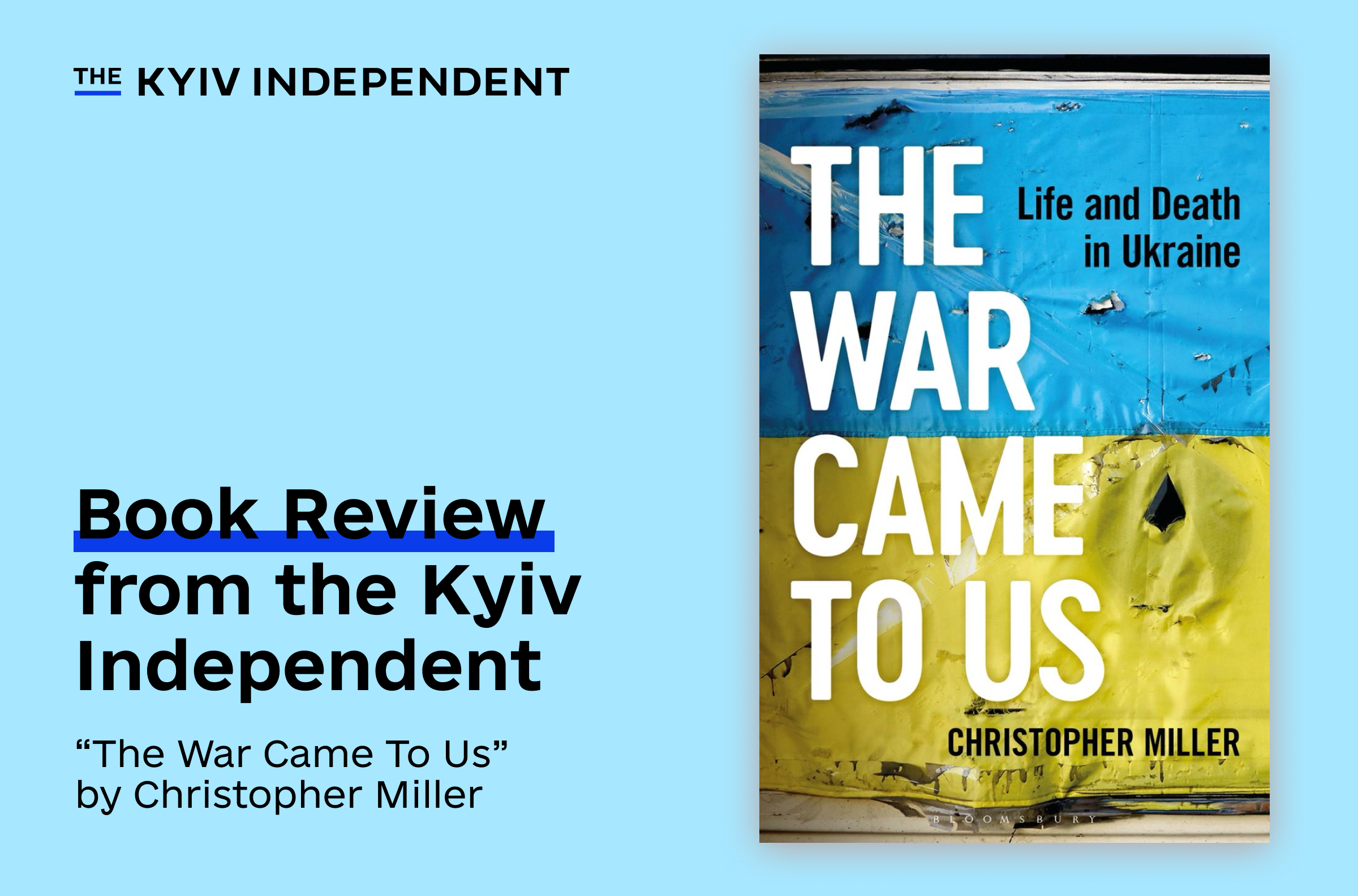Back when he was a young Peace Corps volunteer, the American journalist Christopher Miller was looking to get stationed somewhere on the African continent, but instead, he was sent to the eastern Ukrainian city of Bakhmut, known then as Artemivsk.
The once-prosperous industrial city in Donetsk Oblast – which has become today synonymous with the sheer brutality of Russia’s war against Ukraine – undeniably left a lasting impact on Miller, because he has been reporting on and off from Ukraine for over a decade since then.
Miller’s debut memoir “The War Came to Us” looks back at the pivotal events he witnessed and reported on firsthand, including the Revolution of Dignity in 2014, Russia’s illegal annexation of the Crimean Peninsula and the invasion of Donbas that followed, comedic actor Volodymyr Zelensky beating Petro Poroshenko in the presidential election in 2019, and Russia’s full-scale invasion of Ukraine in 2022.
Readers wanting to learn more about Ukraine and the events which led up to the current war will no doubt be drawn to this book. It touches upon important points that are often overlooked in less-informed Western discourse on Ukraine and these insights help to shed light on the complexities of the country and challenge Russia’s propaganda-driven narratives.
For instance, Miller astutely observes that Ukrainians in the Donbas region harbored doubts not only about Kyiv but also about Moscow. Their yearning to be treated with dignity and respect did not align with a desire for independence from Ukraine as asserted by Russian-backed proxies since 2014, however.
Miller’s insights come with the curiosity that any good journalist should possess, and it is clear that in his years of work he has engaged with people wherever he goes in Ukraine to establish reliable sources as well as to try and understand their perspective better:
“When I asked people about their identities, many said they identified first as people of the Donbas. That was interesting to me but was hardly surprising to people I discussed it with, given that the Donbas, a vast, wild steppe land once controlled by Cossacks, had a long history of rebelling against rulers in both Moscow and Kyiv. People here valued freedom and independence above all else; they didn’t want anyone telling them what to do,” Miller writes.
As Miller moves past his work in the Peace Corps and becomes immersed in Ukraine’s journalism sphere, he briefly highlights the bravery of his colleagues who faced violent threats and were even killed for exposing lies and corruption, most notably in the Donbas region during the era of pro-Russian dictator Viktor Yanukovych.

Despite its strengths, Miller's “The War Came to Us” raises an important question: Should a journalist be a central part of the story they're covering? If so, then to what extent is it acceptable? The book oscillates between personal memoir and hard reporting, yet there is often a lack of synchronicity between the two. Ultimately, it often feels like a book that is trying to accomplish too much.
One might argue that a book solely focused on Bakhmut and the people who called it home would have been more compelling. Possessing an intimate knowledge of Bakhmut from pre-war times, Miller could have easily devoted hundreds of pages to a portrait of the city and the greater Donbas region, further emphasizing the tragedy of its destruction.
His passage on entering the Donbas region for the first time is admittedly beautiful, offering a sense of a book that could have been: “The landscape changed drastically at every turn. It was wide and flat and seemingly boundless. Then all of a sudden there were verdant valleys and rolling hills. A mile-long stretch saw us zip through a tunnel of poplar trees so dense that the light barely shone through. There were quarries with large machines digging out white rock, and around the next bend sprawling fields of sunflowers, their golden heads bowing toward the sunrise. The sky was vast and a vivid cobalt color.”
Miller revisits Bakhmut – his former "stomping grounds," as he fondly calls it – on numerous occasions throughout the book, including the bloody ten-month-long battle between Ukrainian and Russian forces for control of the city. The relationships he forged with the locals, and his efforts to keep in touch with them over the years, are moving.
However, we are constantly reminded throughout the book – with the interjection of a certain first-person pronoun – that Miller was there on the Maidan next to a young protestor who had his eye knocked out of his socket; American and European diplomats asked Miller behind closed doors what he thought of the seemingly more radical leaders on the Maidan; Miller and his colleagues found documents in Donetsk Oblast with Russian war criminal Igor Girkin’s signature approving extrajudicial killings; Miller was the one asking newly-elected President Volodymyr Zelensky hard-hitting questions while others were eager to get a selfie with the former actor…
There is even a rather bizarre anecdote where Miller recounts trying to get press accreditation from Russian proxy officials in occupied Donetsk, and their press secretary hand-feeds him a ripe strawberry before making him promise to “tell the truth.”
All of this risks giving the impression that the focus of this book is not the Ukrainian people and the events that have shaped the country’s ongoing fight for democracy; Christopher Miller is the one who takes center stage in this narrative. Such an observation is not meant to question his interest in and love for Ukraine – far from it. There are repeated passages where the portrayal of a seasoned American journalist reporting from the unpredictable landscape of “post-Soviet” Ukraine risks dominating everything else.
The book is also riddled with name dropping and it becomes grating at a certain point. It begins from the very first pages, with Miller receiving a text message in his Kramatorsk hotel room from retired U.S. Army lieutenant colonel Alexander Vindman, asking him if he’s alright shortly after the start of Russia’s full-scale invasion. Did the reader need to know that it was Vindman who wrote him? What point did that serve, other than to highlight Miller’s prowess at accumulating high-level sources over the years?
The reader is introduced to a number of well-known journalists, politicians, protestors, servicemembers, and other figures, but for many of them, their relevance will likely go over the casual reader’s head, because they are mentioned in passing. For instance, the only thing the reader is told about the Ukrainian investigative journalist and Zaborona co-founder Kateryna Sergatskova is that she asks the waiter at a group dinner before the start of the full-scale invasion to snap a photo of everyone together.
Clichéd passages also stand out from Miller’s more well-written ones, such as when he describes a taxi driver navigating bad roads “like driving over a cheese grater” or that a text message “landed with a piercing ding in the silent darkness.” Coupled with some rather short chapters about the full-scale invasion itself, it occasionally feels like a hurried manuscript that both Miller and the editors could have spent more time on.
“The War Came to Us” is Miller’s first book but surely not the last. He is no doubt capable of writing a truly great book should he choose to move out of the spotlight and let the richness of the topic speak in his place.
“The War Came to Us” is out now and can be purchased from most major book retailers.
Note from the author:
Hi, this is Kate Tsurkan, thanks for reading this book review. There is an ever-increasing amount of books about Ukraine available to English-language readers, and I hope my recommendations prove useful when it comes to your next trip to the bookstore. Ukrainian culture has taken on an even more important meaning during wartime, so if you like reading about this sort of thing, please consider supporting The Kyiv Independent.















